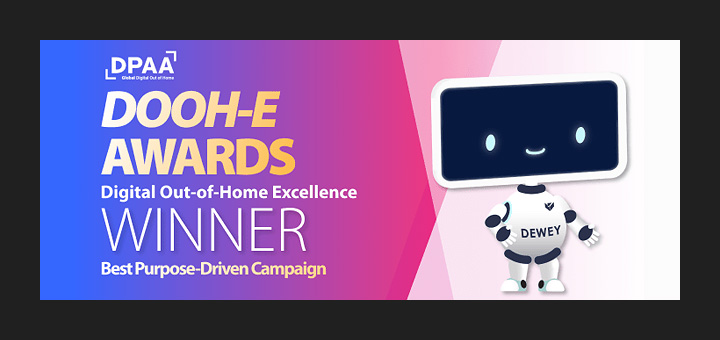MarTech: 2024 Predictions: Data and AI on marketers’ minds
Google will remain firm on third-party cookie deadlines
“While it’s been pushed back in the past, Google will remain firm on its 2024 deadline to remove cookies in Chrome,” said Yahoo’s Chief Revenue Officer, Elizabeth Herbst-Brady. “Advertisers and publishers need to test more cookie alternatives and identity solutions, at scale and quickly.”
Better AI guardrails and encryption for customer data
With the third-party cookie phaseout, marketers will adopt new strategies for collecting customer data that include advanced encryption, as well as compliance with the latest privacy regulations.
“In 2024, brands are gearing up to face new challenges around privacy and ethics with the end of third-party cookies and the advent of new large language models (LLMs),” said Brian Land, VP global sales engineering at search technology company Lucidworks. “This means they’ll be shaking things up in how they market and handle consumer data privacy. For example, they’ll have to find new methods for collecting user data and be more transparent about how they’re collecting that data.”
He added, “When it comes to managing LLMs, marketers will adopt advanced encryption and secure data storage practices to safeguard user information. Rest assured, they’re working hard to get it right — making sure they follow the rules while still keeping consumers engaged and happy.”
AI governance and value to business
Organizations that have been experimenting with new AI tools for specific marketing functions will look to connect these technologies and create a centralized feedback loop to avoid “genAI multiple personality disorder,” said Assaf Baciu, co-founder and Chief Operating Officer for AI communications company Persado.
“Businesses will start deploying a central genAI ‘brain’ to manage the myriad disparate genAI systems currently littered across the tech stack, particularly in marketing,” Baciu said. “This master brain will bring orchestration and order to AI model training and decision-making, much as CRM did for email, and CDPs are doing for customer data.”
With a better handle on AI’s role in the organization, marketers will move past the testing phase and focus on the value AI brings to the business.
“More CMOs will zero in on how genAI can not only be efficient, but also be most effective — driving actions, conversions, and ultimately revenue,” Michele Nemschoff, Persado’s SVP marketing. “However, while genAI has become a formidable copilot to marketers, make no mistake: humans and AI are better together. Maximizing collaboration between the technology and human teams is the path to performance.“
Improved data management for content supply
The year ahead will find organizations using AI to ramp up their content for more robust customer experiences. This means marketers will have to adopt more comprehensive data management so that assets don’t fall through the cracks, and more human time isn’t wasted looking for them.
“Without the correct metadata or naming conventions as inputs, AI doesn’t have the proper resources to provide relevant results,” said Chris Comstock, Chief Growth Officer for marketing data management company Claravine. “Thus, irrelevant, incomplete or inconsistent assets become plentiful and data gaps are seen from content creation all the way to measurement. In 2024 — no matter the vertical — data consistency will become a must-have. Brands will finally invest in the adoption and implementation of AI for optimization and measurement while realizing the need for a way to manage all the inputs to their AI and LLMs.”
Consumers will trade data for value and personalization
As third-party cookies disappear, marketers will continue to search for more engaging ways to connect with customers. The silver lining is that customers will share their data when there’s a clear value exchange and the interaction with the brand pays off for them. The key is that brands are transparent with users about this exchange.
“A clear majority of consumers want personalized ads and are willing to share the information brands need to make it happen — if the value exchange is right,” said Steve Dunlop, CEO and founder of AMA – A Million Ads, a dynamic creative company for audio. “Today, personalization at scale is more accessible, more affordable and more achievable than ever before.”
“As consumers become more privacy-aware of their online activity and data collected on them, the song and dance between offering a personalized experience while still keeping their information highly secure and private will increase,” said Yandong Liu, co-founder and Chief Technology Officer for conversational marketing company Connectly. “In 2024, continuing to find the balance between offering an individual customer experience while educating consumers about their privacy rights will be vital to brand development and the customer experience.”
Marketers use more geographic data
Another solution in the post-cookie era will be depending more on geographic and localized consumer data, according to Rob Davis, CMO and President of independent agency NOVUS.
“The premise is simple: birds of a feather flock together,” said Davis. “By targeting location rather than audience characteristics or anonymized individuals, [geographic targeting] offers a targeting opportunity that is privacy compliant and largely sidesteps the need for third-party cookies.”
He added, “But while the premise is simple, the execution is not. Few agencies and even fewer marketers have the data infrastructure, the personnel, nor the wherewithal to set up campaigns at a zip code level and be able to optimize at extreme granularity. For those that do, it will be a competitive advantage.”
ABM teams adopt buying committee scoring
With more data to go on from ramped-up content and experiences, enterprise B2B marketers will look for more comprehensive ways to target key groups or committees.
B2B marketers will look to go beyond measuring for marketing qualified leads (MQLs) tied to individuals and specific roles in a business. Instead, ABM teams will use qualified buying committee (QBL) scores that identify individuals and weigh them differently in the overall score that determines the likeliness of a committee to buy.
“In addition to the overall buying committee score, sales teams will also have part of the total sum — the individual lead scores,” said Karl Van Buren, CEO and co-founder of B2B programmatic platform Audyence. “This provides them context as to who is most likely to champion their solution, who has little context to the solution being offered, and who may be a blocker. These insights inform a sales approach in a way that traditional lead-scoring models never could.”
He added, “Based on my engagements with hundreds of enterprise marketers and agency team members, enterprise brands have prepared well for cookie deprecation in 2024. The large majority have invested in first-party data strategies that have enabled them to decrease their dependency on cookies.”





